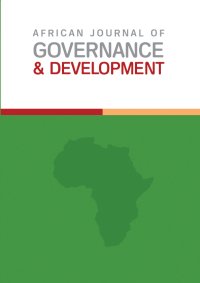Ethnic Bloc Voting and the Challenge of National Integration: Lessons from Nigeria’s 2015 General Elections
Main Article Content
Abstract
Nigeria has continued to grapple with divisive effects of ethnicity on the country’s political process. Apart from the 12 June 1993 presidential election, all post-independent electoral processes have reflected discernible patterns of ethnic bloc voting, which indicate a dip in the country’s political culture. The 28 March 2015 presidential election, won by Muhammadu Buhari, also buttresses the ethnic bloc voting theory, with grave implications for national integration in Nigeria. This paper probes the persistence of ethnic politics in Nigeria after close to six decades of self-rule, and suggests ways of overcoming the divisive and destructive impact of ethnicity in Nigeria’s political process
Article Details

This work is licensed under a Creative Commons Attribution-NonCommercial-NoDerivatives 4.0 International License.
